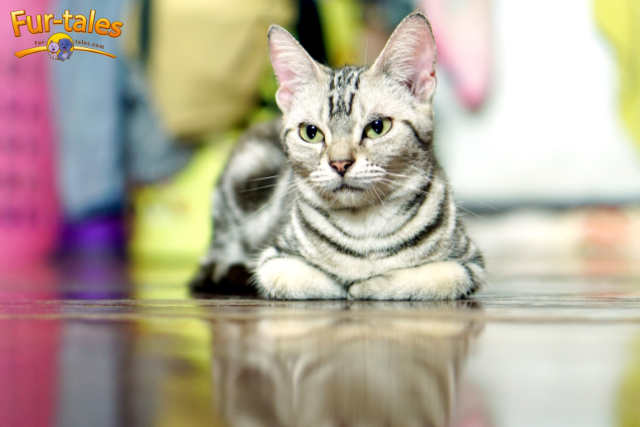
American Shorthair Personality: What to Expect from This Gentle Feline
Among the many cat breeds cherished by pet lovers, the American Shorthair stands out as a timeless favorite. Known for their easy-going nature, sturdy build, and adaptable personality, American Shorthairs have long been considered one of the most reliable and affectionate breeds for families, singles, and seniors alike.
But what makes this breed so beloved? Is the American Shorthair right for your lifestyle? In this article, we’ll explore the personality traits of the American Shorthair, how they behave from kittenhood to adulthood, and how they compare to other popular cat breeds.
A Brief History of the American Shorthair
The American Shorthair’s roots trace back to the early European settlers, who brought these cats on ships to help control rodent populations. Over time, they adapted to American life, becoming not only skilled hunters but also trusted companions.
In 1966, the breed was officially recognized as the American Shorthair, distinguished from random domestic shorthairs due to their breed-specific traits and pedigreed lineage.
What to Expect from an American Shorthair’s Personality
1. Affectionate but Independent
American Shorthairs strike the perfect balance between being affectionate and independent. They enjoy curling up next to you on the couch but don’t demand constant attention.
- They’ll follow you around the house but won’t cling.
- Great for people who want a companion without the neediness.
2. Good with Children and Other Pets
Their patient temperament makes them ideal for homes with children or other animals.
- Rarely lash out or act aggressively.
- Adaptable to dogs and other cats with proper introductions.
- Enjoy playtime with kids but know when to retreat and rest.
3. Playful but Not Hyperactive
Don’t be fooled by their calm appearance—American Shorthairs love a good game of chase or interactive toy session. However, they’re not high-strung or overly energetic.
- Engage in play once or twice a day.
- Easily satisfied with short bursts of activity.
4. Highly Adaptable
Whether you live in a small apartment or a large house, the American Shorthair adapts well. They are:
- Comfortable being alone for a few hours.
- Unbothered by moderate noise or changes in routine.
- Low-stress travelers compared to more sensitive breeds.
5. Intelligent and Observant
While not as mischievous as some clever breeds like Bengals, American Shorthairs are very observant and intelligent.
- Can learn simple commands or games.
- Often find clever solutions to get what they want—like opening cupboards or doors.
6. Quiet Companions
This breed isn’t overly vocal. You’ll hear the occasional meow or purr, but they’re generally quiet and polite housemates.
American Shorthair Behavior by Life Stage
Kitten (0–6 months)
Curious and playful. Needs lots of toys, socialization, and gentle training.
Adolescence (6 months – 1.5 years)
Still active, exploring boundaries. May try mild mischief like climbing counters or chewing.
Adult (2–7 years)
Balanced, calm, affectionate. Typically becomes more cuddly and settled.
Senior (8+ years)
Low-energy, prefers lounging. Still enjoys short playtime and snuggles.
Comparison Table: American Shorthair vs. Other Popular Breeds
| Trait | American Shorthair | Siamese | Persian | Maine Coon | Ragdoll |
|---|---|---|---|---|---|
| Energy Level | Moderate | High | Low | Moderate to High | Low to Moderate |
| Affection | Moderate | Very High | High | High | Very High |
| Vocalization | Low | Very High | Low | Low to Moderate | Moderate |
| Grooming Needs | Low | Low | Very High | Moderate | Moderate |
| Good with Kids | Excellent | Moderate | High | Excellent | Excellent |
| Independence | High | Low | Moderate | Moderate | Moderate |
| Playfulness | Moderate | High | Low | High | Moderate |
Grooming and Care
One of the biggest advantages of owning an American Shorthair is how low-maintenance they are.
- Coat: Their short, dense coat requires brushing just once a week.
- Health: Generally healthy with a lifespan of 15–20 years.
- Weight: Prone to weight gain if overfed due to a laid-back nature—portion control is essential.
- Dental and Vet Care: Regular checkups and brushing keep them healthy well into their senior years.
Ideal Home for an American Shorthair
The American Shorthair fits into almost any living situation. They’re great for:
- Families with children
- Working professionals
- Seniors or retirees
- Multi-pet households
They’re not ideal if you’re looking for a high-energy cat or one that follows you everywhere and craves constant attention (like a Siamese).
Training and Enrichment
American Shorthairs are smart enough to learn commands and enjoy puzzles or treat-dispensing toys.
Training tips:
- Use treats or toys for positive reinforcement.
- Keep sessions short and fun.
- Socialize early with new people and environments.
Best toys:
- Feather wands
- Catnip toys
- Puzzle feeders
- Window perches for bird watching
FAQs
Q: Are American Shorthairs good for first-time cat owners?
A: Yes! Their calm, low-maintenance nature makes them one of the best breeds for beginners.
Q: Do American Shorthairs get along with dogs?
A: With proper introductions, they often do well with calm, cat-friendly dogs.
Q: How long do American Shorthairs live?
A: With proper care, they can live between 15 and 20 years.
Q: Are American Shorthairs lap cats?
A: Some are, but many prefer to sit beside you rather than directly on your lap. They show affection in quieter ways.
Q: Do American Shorthairs shed a lot?
A: They shed a moderate amount, but their coat is easy to manage with regular brushing.
Image Designed Using Canva
